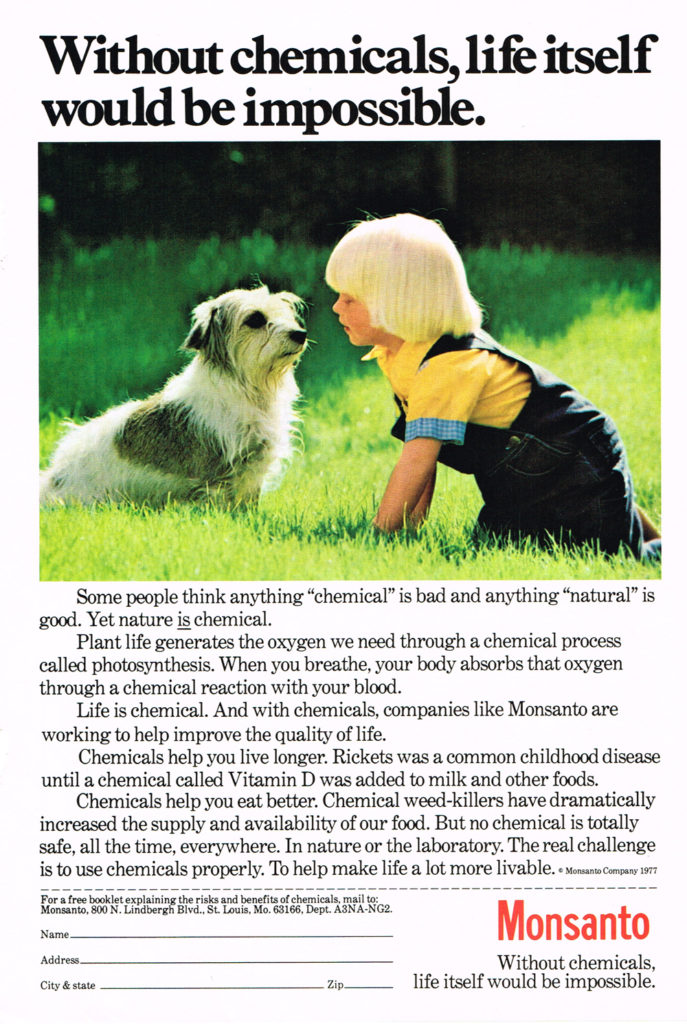Gastropod looks at food through the lens of science and history.
Co-hosts Cynthia Graber and Nicola Twilley serve up a brand new episode every two weeks.
Co-hosts Cynthia Graber and Nicola Twilley serve up a brand new episode every two weeks.
Bart Elmore is a professor of history, focusing on the environment and business, at Ohio State University. While reporting a book on the history of Coca-Cola, he came across Monsanto's origins producing caffeine and saccharin for the company, which planted the "seed" for his book Seed Money: Monsanto's Past and Our Food Future.
A Monsanto ad that was featured in publications like National Geographic in the late 1970s, when they and other pesticide makers were facing the fallout of how the herbicide "Agent Orange," used in the Vietnam War, had caused health problems for soldiers and civilians. (Image source: Jamie/Flickr)
Investigative journalist Carey Gillam has reported deeply on American food systems, both in the field with farmers and behind the scenes of agribusiness and government regulation. Her books include Whitewash: The Story of a Weed Killer, Cancer, and the Corruption of Science and The Monsanto Papers: Deadly Secrets, Corporate Corruption, and One Man's Search for Justice.
Michelle Mart is an associate professor of history at Penn State Berks, where she focuses on environmental history, American culture, and foreign policy. She is the author of the book Pesticides: A Love Story, which she researched in part while a Rachel Carson fellow at the Ludwig Maximilian University of Munich.
In this episode, the first in our three-part weed series, we tried to figure out what a weed actually is, while tagging along on the once-every-twenty-years adventure that is the world's longest-running biology experiment, the Beal Seed Experiment.
Click here for a transcript of the show. Please note that the transcript is provided as a courtesy and may contain errors.